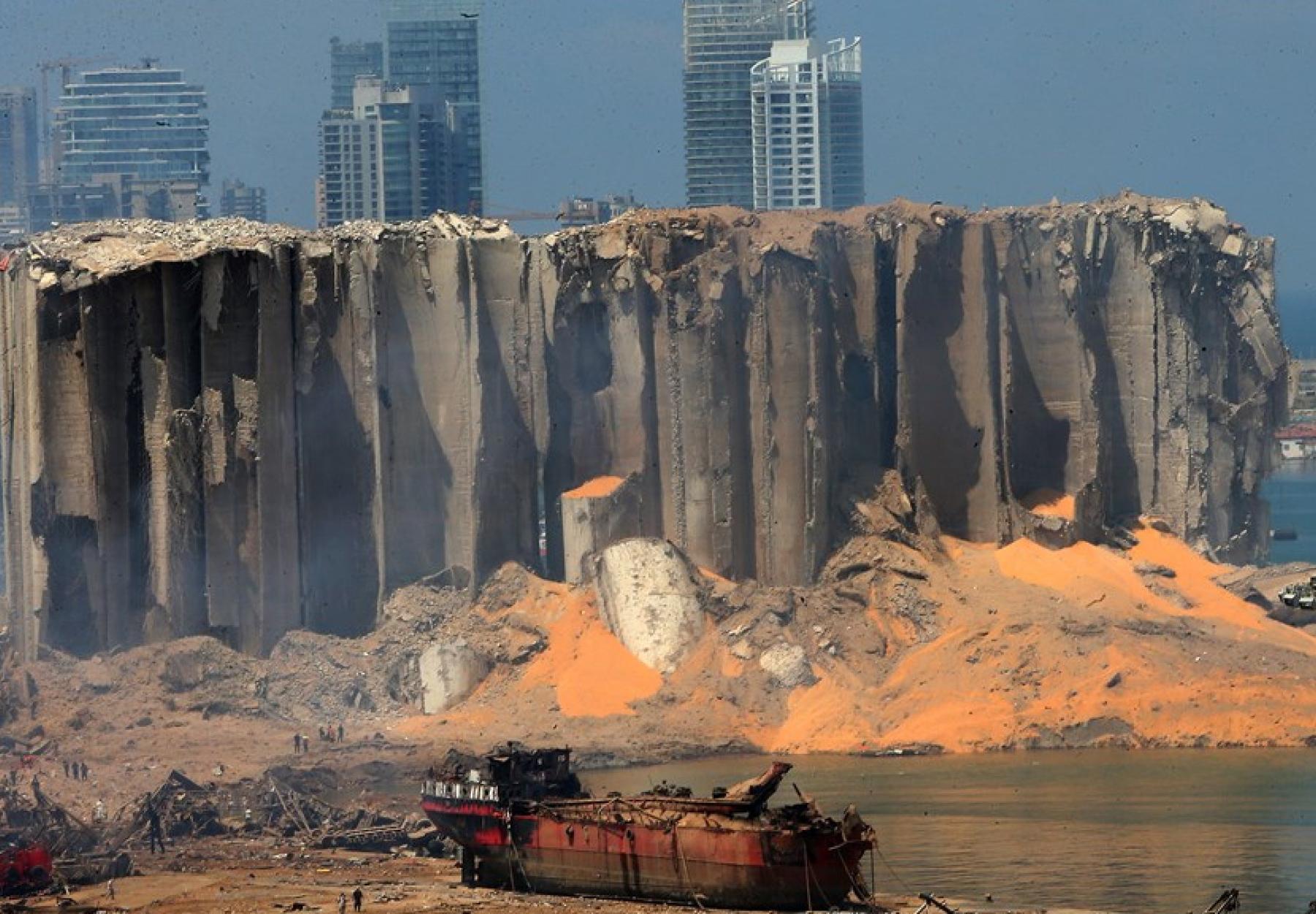
On Thursday, August 6, 2020, the Arab Network for Food Sovereignty (ANFS) issued a statement about the massive explosion in the Lebanese capital of Beirut, last Tuesday afternoon, in which it warned of an acute food crisis that will face the Lebanese as a result of the destruction of the port, which housed the main silos for storing grain and wheat.
ANFS made a series of appeals which called on Arab states and international humanitarian and relief organization to speed up the supply of assistance, food, and medical aid. In the framework of diagnosing the environmental impact and repercussions of what happened, the ANFS said that it was important for the authorities in Lebanon to recognize that there may now be toxic gases and other radioactive material in Beirut.
ANFS also stressed that it is crucial for Arab and international assistance efforts to coordinate with the Lebanese state, with all its apparatuses, and according to national priorities to preserve the sovereignty of Lebanon.
A statement on behalf of the Arab Network for Food Sovereignty (ANFS) on the disaster in Beirut:
Firstly, the Arab Network for Food Sovereignty (ANFS) extends its deepest condolences and sincere sympathy to families in Lebanon because of the disaster that shook the Lebanese capital, Beirut. We have compassion for the victims, and we wish a speedy recovery for the injured. We declare our stand and our solidarity to overcome the disastrous repercussions of the explosion.
This traumatic incident, which has turned the breathtaking capital into a disaster-stricken city, will cause—along with the numbers of victims and thousands of injuries—billions of dollars in losses and intractable crises in most sectors, chief among them an acute food crisis.
We are facing an exceptional dilemma and until the reasons for this explosion are revealed, and whether it was a deliberate act or an event due to negligence, we direct an urgent appeal for the need for serious and rapid action by providing support at all levels, especially since Lebanon has long suffered economic and political crises.
We call on the following:
First: Accelerating the supply of relief, food, and medical services by Arab and international humanitarian and relief institutions to cover the country for at least three months. Preliminary economic estimates are indicating that 80% of Beirut’s port, the gateway to most exports and imports, has been destroyed, which threatens food security in Lebanon.
Second: The main grain silo in the Beirut port has been destroyed, and the world must accelerate in its assistance, so Lebanon does not lose its reserve supply of grain and wheat.
Third: We warn against consuming the remaining wheat or corn in the silos, due to them having been mixed with ploughs, chemicals, industrial oils, and other materials that make them unfit for human or animal consumption and not suitable for use as a fertilizer.
Fourth: The authorities of Lebanon need to recognize that there may now be toxic gases and other radioactive material in Beirut. They need to diagnose the environmental impacts of what has happened on the atmosphere and beaches and work together with Lebanese experts and the United Nations.
Fifth: We are grateful to the countries that sent relief to the people in Lebanon, and we urge other countries to do so because the crisis is enormous and requires cooperation.
Sixth: We affirm that it is crucial for Arab and international assistance efforts to coordinate with the Lebanese state, with all its apparatuses, and according to national priorities to preserve the sovereignty of Lebanon.
In conclusion, the ANFS and its members, with their expertise, are at the service of Lebanon. We are prepared to propose projects that will contribute to supporting food security in Lebanon at this critical time.